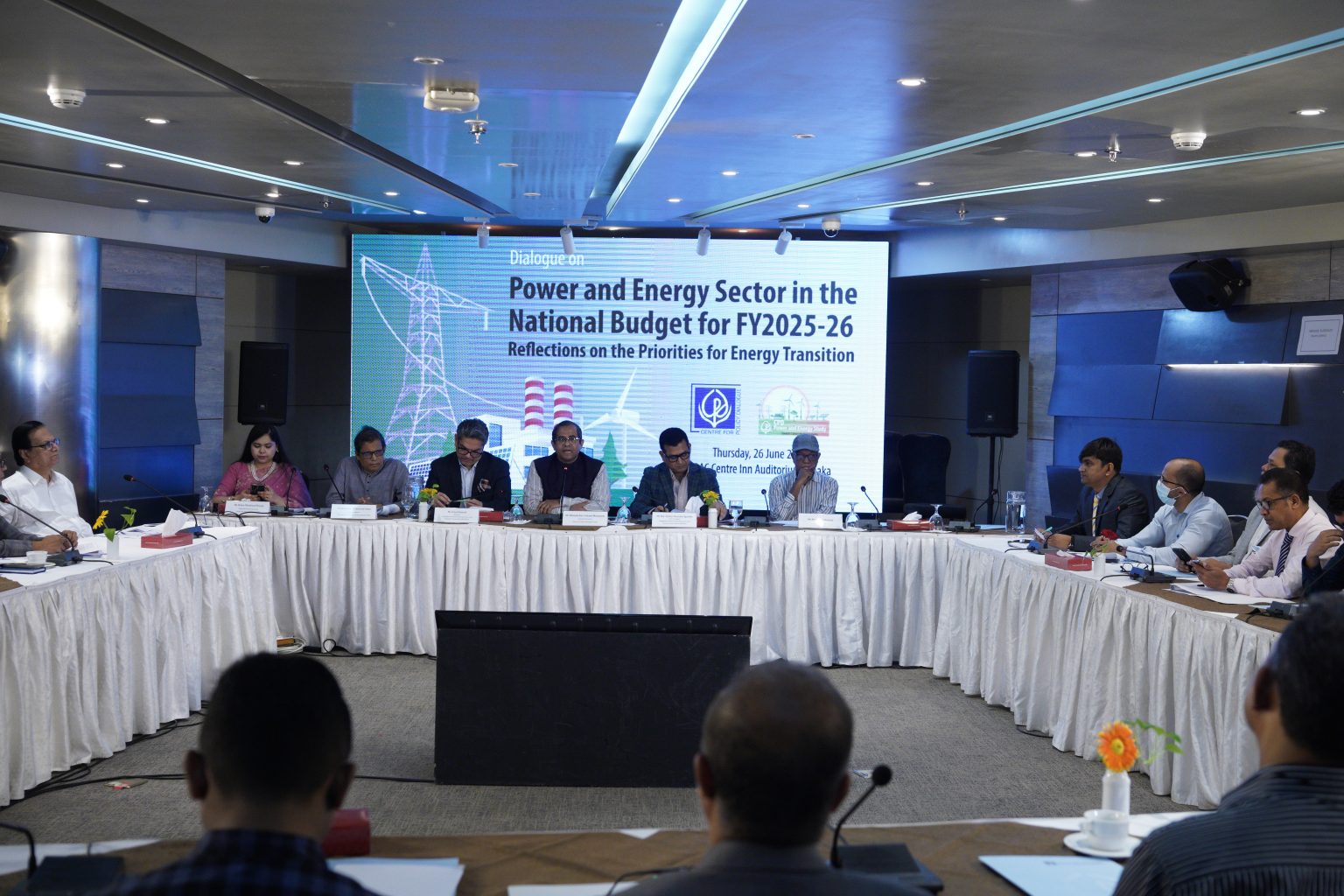Bangladesh’s energy sector is heading toward a deeper crisis as rising import costs and slow renewable energy adoption continue to threaten long-term stability, the Centre for Policy Dialogue (CPD) warned on Thursday.
At a discussion titled “Power and Energy Sector in the National Budget 2025-26” at BRAC Centre, CPD researchers projected mounting financial stress unless the government undertakes urgent reforms. The Bangladesh Power Development Board (BPDB) continues to incur heavy losses despite repeated tariff hikes, while subsidies for energy in the next fiscal year will soar to Tk 370 billion for power and Tk 90 billion for liquefied natural gas (LNG).
CPD Associate Researcher Helen Mashiyat Preoty highlighted that unpaid bills to private power operators — including Adani Power — are further compounding the issue. “Our dependence on expensive fossil fuel imports leaves us highly vulnerable to global price shocks,” she noted, adding that renewable energy projects remain underfunded despite the inclusion of seven new projects in the budget.
The report also flagged stalled progress on green energy, citing 37 canceled solar power proposals and chronic tender failures. CPD experts argue that current allocations fall short of meeting Bangladesh’s 2030 renewable energy targets, with the proposed Tk 7 billion special fund for renewables deemed insufficient.
CPD Research Director Khondaker Golam Moazzem urged the interim government to focus on transitioning to green energy. “The budget must drive the energy transition, not maintain contradictions,” he said. CPD recommended shifting subsidies away from fossil fuels and providing tax incentives to support clean energy initiatives.
Energy Adviser Muhammad Fouzul Kabir Khan attended the event virtually, while industry leaders including BGMEA Vice President Vidiya Amrit Khan and energy sector experts joined in person.


